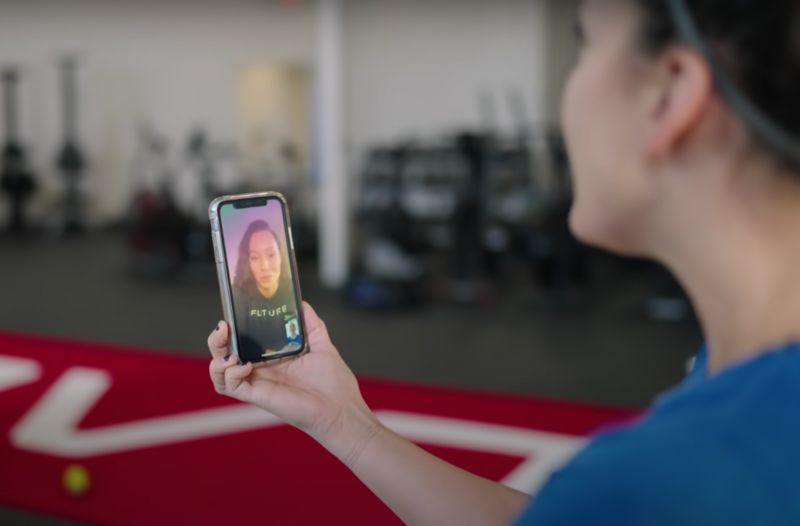We test and review fitness products based on an independent, multi-point methodology. If you use our links to purchase something, we may earn a commission. Read our disclosures.
Health coaching is a rapidly growing field, with Precedence Research reporting that health coaches are part of a $16 billion market in 2022. In fact, all wellness industries are seeing a boom, with the Bureau of Labor Statistics reporting that the career field for health education specialists, encompassing many types of wellness professionals, is growing at a rate of 7%, which the BLS says is faster than average.
So, if you want to become a health coach, you’re in good company. I’m an integrative nutrition health coach through the Institute for Integrative Nutrition, and the education I received during that program has influenced a lot of my work as a certified personal trainer and fitness/wellness writer.
Ahead, I cover eight of the best health coaching programs based on criteria such as accreditation, learning flexibility and format, prerequisites and continuing education requirements, and final exam format.
RELATED: How to Become a Personal Trainer
Best Health Coaching Programs
- Best Health Coaching Program Overall: American Council on Exercise Health Coach Certification
- Best Health Coaching Program With no Prerequisites: ISSA Certified Health Coach
- Best Health Coaching Program for Personal Trainers: NASM Wellness Coach Certification
- Best Short Health Coaching Program: Cornell Wellness Counseling Certificate
- Best University Health Coaching Program: Duke Health & Well-Being Coach Training
- Best Holistic Health Coaching Program: Institute for Integrative Nutrition Health Coach Certification
- Best Health Coaching Program for Healthcare Providers: The National Society of Health Coaches (NSHC) Health Coach Certification
- Best Post-Graduate Health Coaching Program: Mayo Clinic Wellness Coach Training Program
What Does a Health Coach Do?
A health coach is someone who helps other people make positive lifestyle changes in order to become healthier physically and mentally. Typically, health coaches assist with behavior change and habit formation.
It’s important to note that a health coach is not a nutrition coach or a personal trainer, although health coaching skills can certainly help a nutrition coach or personal trainer in their career. Just as health coaching skills go along great with fitness and nutrition coaching, those skills play well with health and medical professions, too.
RELATED: NASM Nutrition Coach Certification Review
In fact, there are some health coaching programs designed specifically for licensed healthcare practitioners in a variety of fields. These courses intend to help healthcare workers provide better care to their patients from a lifestyle perspective.
Health coaches work in a variety of settings. Many health coaches own their own businesses, but it’s also common for health coaches to work in gyms, clinical settings, schools, universities, and even workplaces for corporate wellness.
Best Health Coaching Program Overall: American Council on Exercise Health Coach Certification
Good for: Earning a respected NCCA-accredited credential and keeping education costs low
Best Overall
American Council on Exercise (ACE) Health Coach Certification
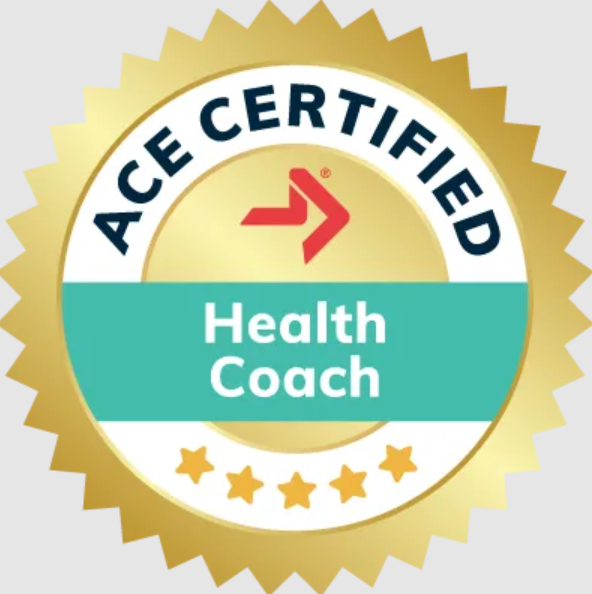
Product Highlights
- Fully online health coaching program
- 3 study packages available
- Self-paced, but live classes also available
- Must meet prerequisites
Pros & Cons
Pros
- Several ways to satisfy prerequisites
- Multiple study packages to choose from
- Live lectures available
- Exam retakes are allowed
Cons
- Anyone can take the course, but you must meet prerequisites to sit for the exam
- Must pay to retake exam if you don’t pass
Bottom Line
The American Council on Exercise is a reputable and well-respected organization in the fitness and wellness industry. The ACE-CHC program prepares students to help others make positive changes in their lives related to healthy habits, nutrition, and exercise.
The American Council on Exercise scored the highest according to our testing methodology for health coaching programs, which includes criteria such as price, course length, accreditation, prerequisites, continuing education requirements, and final assessment.
RELATED: What Is ACE Certification? A Review of the Personal Trainer Course
The ACE health coach certification is easily the best you can buy for the price. Though this program isn’t a track to become a national board certified health and wellness coach (NBC-HWC), the program is accredited by the National Council on Certifying Agencies (NCCA). The NCCA accreditation is the gold standard in online study programs that result in a wellness or fitness certification.
The curriculum consists of five sections:
- Foundation for Health and Wellness Coaching
- The Coaching Experience
- Lifestyle Medicine
- Chronic Diseases and Comorbid Conditions
- Professional Conduct and Establishing Your Coaching Practice
ACE offers three study packages with prices starting at $850, making this a budget-friendly pick compared to the average cost of health coaching education. In fact, ACE scored 5 out of 5 points for pricing for its low financial barrier to entry. ACE also offers interest-free payment plans, making it even more financially accessible.
In addition to self-study programs, ACE offers a 16-week program featuring live, real-time, virtual classroom experience. The live program includes Q&A webinars and peer learning experiences.
To sit for the ACE health coach certification exam, you must be at least 18 years old at the time of your exam, hold a current CPR/AED certification with proof of a live skills check, and submit proof of one of the following:
- Current NCCA-accredited certification in fitness, nutrition, healthcare, wellness, human resources or a related field
- An associate degree or higher from an accredited college or university in fitness, exercise science, nutrition, healthcare, wellness or a related field
- Completed health coach training and education program approved by the National Board for Health and Wellness Coaches (NBHWC); or
- A minimum of two years of documented work experience in coaching, leading, designing, implementing or facilitating one or more of the following: behavior or lifestyle change, exercise, wellness, nutrition or physical activity”
ACE offers a proctored exam you can take at home or in a testing center; both are NCCA-accredited. It consists of 125 multiple-choice questions. Upon passing the exam, your credential is valid for two years, and you have to complete 20 hours of continuing education and pay the renewal fee to recertify.
RELATED: ACE vs NASM: A Personal Trainer Breaks Down Both
| Prerequisites | Be 18 years old, hold CPR/AED certification, AND hold NCCA-accredited certification in a related field OR associate degree or higher in a related field OR two years of documented relevant work experience |
| Price | $850 |
| Course length | Up to 6 months |
| Expected hours per week | Self-paced, study as needed |
| Learning platform | Online |
| Exam format | Online, multiple-choice, proctored |
| Recertification requirements | 20 hours of continuing education every 2 years (2.0 CECs) |
Best Health Coaching Program With No Prerequisites: ISSA Certified Health Coach
Good for: Prospective students looking for a comprehensive course with low barriers to entry
Best With No Prerequisites
ISSA Certified Health Coach (CHC)

Product Highlights
- Online, self-paced health coach certification program
- Pay-in-full option to save money
- Monthly payment plans available
- Covers basics of nutrition, exercise, and behavior change
- Deep dive into habit formation and lifestyle changes
Pros & Cons
Pros
- 100% online, self-paced course
- Hard copy book available
- Video lectures included
- Study support team available via text, email, and phone
- One free retake for the exam
Cons
- Not a good fit for individuals who struggle with self-learning
- Not approved course through the National Board of Health and Wellness Coaches
Bottom Line
With the ISSA Certified Health Coach training program, you will learn everything you need to know in order to guide clients to healthier habits and make positive lifestyle changes. This course is not a deep dive into nutrition science or exercise physiology, rather a comprehensive course designed to teach you strategies for behavior change and habit formation.
Looking for a career change? Thanks to ISSA, aspiring health coaches who don’t have an educational background in fitness, health, or wellness can still earn a respected health coach credential. As long as you are 18 years old and hold a high school diploma or equivalent, you can enroll in the ISSA certified health coach training program.
The ISSA program scored highly for studying and learning options, earning 5 out of 5 points in this category because it’s completely self-paced if you want it to be, but there are also options for more structured learning. For instance, in the ISSA portal, there’s an option for a guided study program that allows you to complete the course in just 10 weeks. You have a maximum of one year from the day you purchase the course to complete it and take the exam.
After completing the ISSA health coaching course, you should be able to:
- Promote behavior change by implementing behavior change theories
- Understand the impacts of diet and exercise on physical and mental health
- Use motivational interviewing techniques to encourage change
- Understand the principles of habit formation and help clients form positive new habits
- Select and implement lifestyle modifications based on your clients’ needs
- Know the basics of building a health coaching business
To help you get there, this course features quizzes at the end of each chapter, as well as unlimited virtual access to study mentors. ISSA also provides worksheets, templates, and activities to help you thoroughly understand the client intake and assessment process.
The main downside to the ISSA health coach program is that it doesn’t sport any accreditations. It’s not NCCA-accredited nor is it approved by the National Board of Health and Wellness Coaches (NBHWC), so it earned the minimal score of 1 out of 5 points in this category. However, since there are currently no formal regulations in place for the licensing or certification of health coaches, this won’t affect your ability to practice.
Still, it would be worth using the ISSA course as a foundational educational opportunity and pursuing advanced education at a later time if you want to be the best health coach you can be. At less than $1,000, this course is one of the least expensive available. It earned 5 out of 5 points for price.
| Prerequisites | Be 18 years old and hold a high school diploma or equivalent |
| Price | $988 |
| Course length | Up to 1 year |
| Expected hours per week | Self-paced; as many as needed |
| Learning platform | Online |
| Exam format | Open-book, untimed, online, at home |
| Recertification requirements | None |
Best Health Coaching Program for Personal Trainers: NASM Wellness Coach
Good for: Certified personal trainers who want to learn more about behavior change
Best for Personal Trainers
NASM Certified Wellness Coach (NASM-CWC)
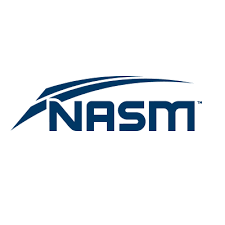
Product Highlights
- Certifies you to be a wellness coach
- No prerequisites to take this course
- Fully online and self-paced course
- Maximum of 1-year to take the exam
Pros & Cons
Pros
- Payment plans available
- Fully online and self-paced
- Counts for 1.9 NASM CECs (19 hours)
- No prerequisites
Cons
- Expensive
- No hard copy textbook available
- Not an approved course by the National Board of Health and Wellness Coaches
Bottom Line
The NASM Certified Wellness Coach course allows you to practice as a general wellness coach who can help clients establish healthier habits and change their lifestyle for the better. This is not an intensive science-based course, so it won’t be the right fit for individuals looking to deep dive into anatomy, physiology, or nutrition science. However, it’s a great option for those interested in lifestyle intervention strategies and behavior change.
The National Academy of Sports Medicine (NASM) is a leading certifying agency in the personal training industry, and they offer a wellness coaching certification program as well. This particular course is not NCCA-accredited or NBHWC-approved, but we think it’s a great layer of education for exercise professionals who already hold an NCCA-accredited certification in related areas.
RELATED: NASM Review (2024): The Gold Standard Of Personal Training Certifications?
For personal trainers specifically, becoming a NASM Certified Wellness Coach could improve your clients’ adherence to programs, since you’ll be better equipped to select and implement lifestyle modifications other than just exercise.
Additionally, while personal trainers are experts in exercise programming and fitness, personal training certification programs only briefly cover techniques like motivational interviewing and behavior change. Those skills are integral to health coach certification programs and give trainers an edge over trainers who may not be as developed in those skills.
To take this course, you must be at least 18 years old and hold a high school diploma or equivalent. There are no other prerequisites, but NASM strongly encourages a prior certification in fitness or nutrition. The course is self-paced and fully online, without any real opportunity for structured learning—so it’s best for disciplined self-learners. You have one year to complete the course and take the exam from the day you purchase the course.
The exam is an at-home, open-book exam that you can take on any web browser. It’s not proctored, which is why it’s not NCCA-accredited, but it is timed. You have 120 minutes to answer 100 questions. While it’s open-note, you’ll still need to know your stuff in order to complete the exam within the time frame.
Plus, NASM does require graduates of this program to earn continuing education in the field. Every two years, you must earn 1.9 CECs (about 19 hours) to renew your certification, earning NASM 5 out 5 points in this category. This is really important, because allied health professionals need to stay up-to-date on best practices and new research to continue providing the best service.
I think the price is high for what it is. At $3,999—often on sale for $2,999—I gave NASM 3 out of 5 points for pricing because it’s still within the average range for health coach training.
RELATED: NASM vs NSCA: Which Is the Best CPT Cert?
| Prerequisites | Be 18 years old and hold a high school diploma or equivalent |
| Price | $2,999 |
| Course length | Up to 1 year |
| Expected hours per week | Self-paced; as many as needed |
| Learning platform | Online |
| Exam format | Open-book, online, at home, 120 minutes max |
| Recertification requirements | 1.9 continuing education credits every 2 years |
Best Short Health Coaching Program: Cornell Wellness Counseling Certificate
Good for: Allied health professionals who want a quick course covering lifestyle coaching
Best Quick Option
Cornell Wellness Counseling Certificate
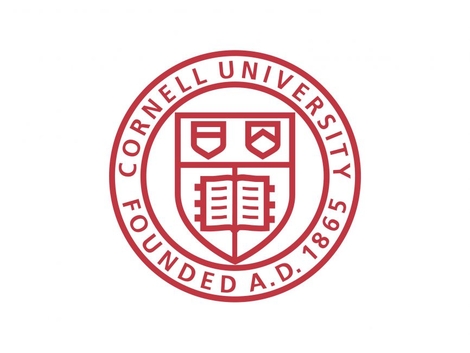
Product Highlights
- Fully online wellness counseling certification course
- Instructor-led course with small class sizes
- 3-5 hours per week required
- 2-month program duration (4 courses, each 2 weeks long)
Pros & Cons
Pros
- Short program duration of just 2 months
- All online
- Access to industry expert instruction
- Deep dive into behavior change and habit formation
Cons
- Experience or licensure in medical or allied health fields highly recommended
Bottom Line
For medical professionals and allied health professionals, the eCornell Wellness Counseling Certification can provide up to 40 continuing education credits and equip them with new skills to better serve their clients and patients. It is a two-month-long, instructor-led program.
If you already work in the health, wellness, or fitness industry and are looking for a quick course to advance your knowledge and learn new skills, the Cornell Wellness Counseling Certificate could be the right fit for you.
This course consists of four distinct classes, each spanning two weeks. The course takes just two months to complete in total. The classes are:
- Understanding the Person
- Understanding the Deeper Need
- Eliciting New Behaviors
- Promoting Organizational Wellness
The classes build upon each other and must be taken in that order. While there are no formal prerequisites to enroll in the course other than being at least 18 years old, Cornell highly encourages healthcare providers and allied health professionals, such as registered dietitians, nutritionists, and personal trainers, to apply.
You’ll learn from a highly qualified Cornell lecturer, Beth McKinney, who has worked in the coaching industry for more than 20 years and holds a Bachelor of Science in Nutrition Science and a Master’s in Health Education.
The program format is a virtual classroom experience that requires attendance to instructor-led sessions, although the expected time commitment is just three to five hours per week. Because this format is a bit more rigid than a self-paced course, I gave it 4 out of 5 points for study options.
When you complete the course, you’ll earn a Wellness Counseling Certificate from Cornell College of Human Ecology. While this course isn’t NBHWC-approved, it is part of the distance learning arm of an accredited university, earning 3 out of 5 points for credibility.
RELATED: What is CSCS? Strength and Conditioning Coach Exam Review
| Prerequisites | None |
| Price | $3,900 |
| Course length | 2 months |
| Expected hours per week | 3-5 |
| Learning platform | Online |
| Exam format | No exam |
| Recertification requirements | None |
Best University Health Coaching Program: Duke Health & Well-Being Coach Training
Good for: College graduates who want to break into the wellness coaching field
Best University Option
Duke Health & Well-Being Coach Training

Product Highlights
- Designed as a post-graduate certification program
- Ideal for those who already have experience in fitness, health, and nutrition
- Online or hybrid
- Attendance required
- Not self-paced
Pros & Cons
Pros
- Prepares you to sit for National Board for Health and Wellness Coaching (NBHWC) exam
- The Duke name carries weight and respect
- 3-month program
- Online and hybrid options available
Cons
- Start date transfers not allowed
- 10% admin fee if you cancel
- Must have bachelor’s degree or minimum of 3 years experience in the medical or allied health field
Bottom Line
If you are looking for a health coaching certification course from a major U.S. university, the Duke Health & Well-Being Coach Training is definitely worth looking into. It’s approved by the National Board for Health and Wellness Coaching (NBHWC) and allows you to sit for the national board-certified credential.
If you are looking for a university-affiliated health coaching program, check out Duke’s Health & Well-Being Coach Training, an approved course through the National Board of Health and Wellness Coaching. This means that if you pass the course, you can sit for the NBHWC exam for board certification.
To take this course, you’ll need to submit an application; if you’re approved, your approval is valid for 18 months, and you can sign up for any of the cohorts that begin within that time frame. You must hold a minimum of a bachelor’s degree (in any field of study) to qualify to enroll.
Prospective students can choose from a fully online format or a hybrid format, which requires in-person attendance, although Duke’s website indicates that the hybrid option is still on hold after the COVID-19 pandemic. Currently, you can only sign up for the online option.
Even in the online format, there is an attendance policy, and full attendance is required to scheduled live online learning sessions. You’ll need to attend a three-hour session once a week in the first portion of the course, which covers the core competencies of coaching. In the second portion of the course, which covers advanced coaching skills, all coursework is self-directed but includes individualized mentoring from a faculty member. For students who are working full-time or have other daytime commitments, this program might not be the right fit.
This program covers everything you need to know to serve as an impactful health coach, from the neuroscience behind habit change to empathetic communication techniques.
The exam has two parts: written and oral. You must score an 80% or higher on the written portion and pass the oral exam; you can take the written portion as many times as needed during the exam period.
Upon passing the exam, you will earn a Duke Health & Well-Being Coach Training Certificate of Completion and certification as an Integrative Health Coach by Duke Integrative Medicine. If applicable, you’ll also earn continuing education credits from Joint Accreditation or the International Coaching Federation.
| Prerequisites | Bachelor’s degree in any field of study |
| Price | $5,500 |
| Course length | 10 months (online); 8 months (hybrid) |
| Expected hours per week | minimum 3 (scheduled live sessions) |
| Learning platform | Online, hybrid options |
| Exam format | Written and oral |
| Recertification requirements | None |
Best Holistic Health Coaching Program: Institute for Integrative Nutrition Certified Health Coach
Good for: Prospective students interested in the intersections between nutrition, mental health, and fitness
Best Holistic Program
Institute for Integrative Nutrition (IIN) Certified Health Coach (CHC)
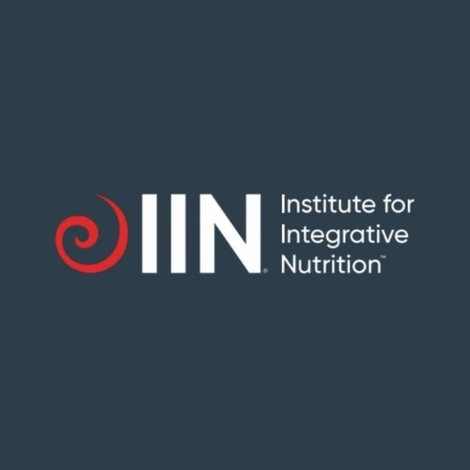
Product Highlights
- Health coaching certification that focuses on holistic health
- Emphasizes “bio-individuality” and that no nutrition plan should be the same
- Covers nutrition, fitness, social wellness, and emotional wellness
- Big emphasis on behavior change and habit formation
- Can be done in 6 months to 1 year
Pros & Cons
Pros
- Available in english and spanish
- Earn up to 29 college credits by completing the program
- Approved course by the National Board for Health and Wellness Coaching
- Thorough curriculum that covers more than just nutrition
- Fully online
- Recognized by many national and international health coaching organizations
Cons
- Very expensive
- Must occasionally attend scheduled live sessions
- 6-month and 12-month track available, modules open weekly so you can’t work ahead
Bottom Line
The Institute for Integrative Nutrition is one of the largest and most respected health coaching schools in the U.S. and beyond. The school partners with several colleges and universities for course credit, and the IIN is backed by the National Board for Health and Wellness Coaching, the International Coaching Federation, The Health Coach Alliance, the International Association of Health Coaches, and more.
The Institute of Integrative Nutrition (IIN) is a widely recognized name in the health coaching industry, and the school has graduated more than 150,000 students. IIN’s foundational health coach training program is accredited by the International Coaching Federation and is a stepping stone to IIN’s Coaching Intensive Practicum, which allows students to sit for the national board certification exam.
Additionally, IIN holds partnerships with multiple universities in the U.S. and is a member of The National College Credit Recommendation Service, which helps students receive college credits for nontraditional programs.
All of the above led to a 5-out-of-5-star rating for IIN in the accreditation category.
The standard program can be completed in 12 months, or you can choose the accelerated program, which takes six months. Either way, you’ll complete the same 40 modules, but you’ll complete one per week on the 12-month track and two per week on the six-month track.
The entirety of the course is conducted online, but it’s not entirely self-paced. As you approach the end of the course, you’ll need to attend live coaching calls with peers in your cohort as well as a mentor. Attendance is mandatory and required to graduate.
You’ll learn about a variety of topics that impact overall health, with an emphasis on holistic health—meaning, more than just nutrition, fitness, and disease management.
The IIN course teaches students about the importance of mental health, including topics like spirituality, gratitude, and individuality based on the concept that such things are our “primary food.” The foundational lesson of the program is that people will always find it difficult to make healthy decisions about their physical health if their mental health isn’t taken care of first.
Upon completing the program, you will have met the prerequisite to enroll in the Coaching Intensive Practicum, which prepares you to sit for the national board certification exam.
| Prerequisites | Be 18 years old and hold a high school diploma or equivalent |
| Price | $5,995 |
| Course length | 6 months or 1 year |
| Expected hours per week | 5-8 for 12-month track, about 10-16 for 6-month track |
| Learning platform | Online with some scheduled live sessions |
| Exam format | No exam, must attend scheduled mentored coaching sessions and submit assignments |
| Recertification requirements | None |
Best Health Coaching Program for Healthcare Providers: The National Society of Health Coaches (NSHC) Health Coach Certification
Good for: Licensed healthcare professionals looking to provide better care to patients
Best for Clinicians
The National Society of Health Coaches (NSHC) Health Coach Certification
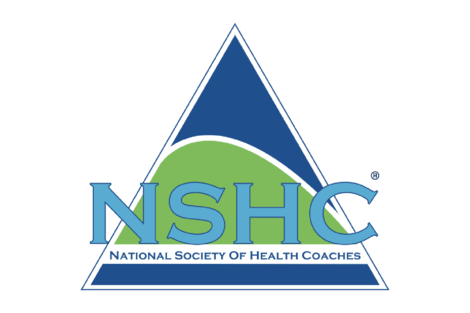
Product Highlights
- Developed specifically for nurses, clinicians, and allied health professionals
- The first first Clinical Model of Evidence-based Health Coaching (EBHC)® in the U.S.
- 100% self-paced program
- Designed to help clinicians better serve patients
Pros & Cons
Pros
- Self-paced
- All online
- Developed by licensed healthcare practitioners
- Credential is valid for 5 years
Cons
- Only licensed healthcare professionals can earn the CHC credential from this program
- Non-licensed professionals earn a “certificate of completion” but do not get to use the CHC title
Bottom Line
The National Society of Health Coaches (NSHC) Health Coach Certification was designed for currently licensed healthcare practitioners to learn new skills and better serve their patients. You must be a licensed healthcare professional (a full list of eligible professions is available on the NSHC website) to earn the CHC credential from this program. Anyone can take it, but those not licensed will earn a “certificate of completion” and are not eligible to use the CHC credential.
This course was designed specifically for medical providers and allied healthcare professionals, so the enrollment requirements are more stringent. You must be a licensed health or medical practitioner to take this course and earn the title of certified health coach. Unlicensed individuals may apply and enroll, but they will earn a certificate of completion, not a health coach certification.
Because this course was designed to support professionals in a clinical setting, it doesn’t meet the educational requirements for students to sit for the National Board of Health and Wellness Coaching certification exam.
While that’s understandable, I couldn’t find any indication of a different accreditation, such as from the National Commission on Certifying Agencies (NCCA), Distance Education Accreditation Commission (DEAC), or International Coaching Federation (ICF). Therefore, this program only earned 1 out of 5 points for accreditation, which was surprising to find since it’s such a popular and well-established program.
The course outline reflects its intended outcome, covering communication techniques and learning styles as they apply to clinical settings, tobacco cessation, weight loss and management, stress management, and evidence-based practice for managing chronic conditions.
Since the course is all online and self-paced with no time limit, it earned 5 out of 5 points for studying and learning options.
The final exam consists of a timed, 50-question multiple-choice test, as well as an oral exam performed over video conferencing software. Students must pass both parts to earn their certification and the continuing education credits that come with it. To earn a certificate of completion (if you are not a licensed healthcare professional), you must pass a 125-question multiple-choice exam.
Your certification is valid for five years, and there are no continuing education requirements, but you have to retest every five years to renew your certification.
| Prerequisites | Be a licensed health or medical practitioner |
| Price | $875 |
| Course length | No limit to complete the course |
| Expected hours per week | 85 to 100 hours of self-study at your own pace |
| Learning platform | Online |
| Exam format | Online; 50 multiple-choice questions and a skills competency check with written answers |
| Recertification requirements | Retake the exam every 5 years |
Best Post-Graduate Health Coaching Program: Mayo Clinic Wellness Coach Training Program
Good for: College graduates who want an intensive program from a respected institution
Best for College Grads
Mayo Clinic Wellness Coach Training Program
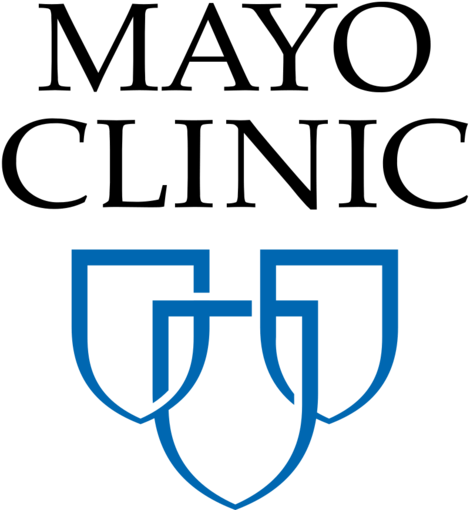
Product Highlights
- Designed for college graduates and licensed healthcare professionals
- 12 online training sessions
- 4-day virtual immersive workshop experience
- Weekly peer coaching practice
- Must satisfy prerequisites
Pros & Cons
Pros
- Accredited course of the National Board for Health and Wellness Coaching (NBHWC)
- Allows you to sit for board-certification exam
- Extremely in-depth course with live skills requirements
- Adequately prepares students for a career in coaching
Cons
- Not self-paced, must sign up for a specific enrollment period
- Weekly attendance-mandatory sessions
- Must have a minimum of an associate’s degree to complete
Bottom Line
The Mayo Clinic Wellness Coach Training Program is a very intensive, in-depth health coaching certification program that prepares you to sit for the National Board for Health and Wellness Coaching (NBHWC) board-certification exam. It includes online lectures, peer-to-peer coaching, faculty-mentored skills sessions, and an attendance-mandatory, four-day live online intensive.
This intensive, three-month program from Mayo Clinic’s School of Continual Professional Development includes online learning as well as hands-on practice coaching sessions. To enroll, you must hold an associate’s degree and a current license in the health or medical field or hold a bachelor’s degree in any field of study.
Unfortunately, this program isn’t super flexible, requiring attendance to live online sessions and requiring students to learn in cohorts with specific start dates. For busy professionals who don’t have much control over their schedule, this may not be the best fit unless their employers allow work time to be used for education.
The course consists of three pillars: 12 weekly online training sessions, a four-day intensive workshop, and peer-to-peer coaching conversations. Attendance is required for all 12 sessions, the entirety of the four-day workshop, and weekly peer coaching sessions. Asynchronous coursework is also required, meaning coursework you do on your own.
Over the course of 12 weeks, you’ll learn about topics such as neurobiology, goal-setting and action-planning, healthy lifestyle basics and health literacy, communication and listening skills, and more.
At the end of the course, you’ll take a written and oral exam. Passing both sections of the exam qualifies you to sit for the national board certification exam from the National Board of Health and Wellness Coaching.
| Prerequisites | Associate’s degree AND current health or medical licensure, OR bachelor’s degree in any field |
| Price | $4,900 |
| Course length | 3 months |
| Expected hours per week | Minimum 5 |
| Learning platform | Online |
| Exam format | Live practice coaching sessions |
| Recertification requirements | 30 hours of continuing education every 3 years |
Other Health Coaching Programs I Researched
The eight health coaching programs above represent what I think are the best options for a variety of types of students. However, there are other programs available. A few that I researched include:
- Precision Nutrition Level 1 (PN-L1): This is a nutrition coaching course more so than a health or wellness coaching course. GGR senior editor Nicole Davis is PN-1 certified and says it dives deep into nutrition science, so it’s a better fit for those specifically interested in that.
- Dr. Sears Wellness Institute: Dr. Sears Wellness Institute offers NBHWC-approved health coach training and the option to earn specialist credentials. It’s a good option for people looking to coach a niche clientele, such as pregnant people or seniors.
- Wellcoaches: Anyone with an associate’s degree or 4,000 hours (about two years) of relevant work experience can enroll in the Wellcoaches program, and students may choose from the regular track or national board certified track. This program requires real-time, live online classes.
- Health Coach Institute: This school offers multiple education options, including a dual life coach and health coach training program. The dual credential and regular health coach credential are not NBHWC-approved, but the Health Coach Institute offers a separate track that is.
How I Picked and Tested the Best Health Coach Certification Programs
I am an integrative nutrition health coach through the Institute of Integrative Nutrition, and I spent a lot of time researching all of the available options before I chose one. At the time, I was particularly interested in holistic wellness and how nutrition impacts our mental health and mindset, physical health, and life in general. I also chose IIN because I wanted a program that emphasized behavior change and permanent habit formation so I could learn how to help people establish a healthy lifestyle rather than chase diet after diet or crazy workout plans for weight loss.
As my interests in fitness, nutrition, and coaching grew, I pursued other fitness and nutrition training certifications. I’ve been working in the fitness and wellness industry since 2017, and I’m deeply familiar with the various certification courses and agencies out there.
I chose the health coach training courses on this list based on my own experiences and research, as well as on a variety of criteria, including:
- Price
- Course length
- Continuing education requirements
- Studying and learning options
- Course prerequisites
- Hours per week required
- Course accreditation
- Whether the program is approved by the National Board for Health and Wellness Coaching (NBHWC)
Who Should Become a Certified Health Coach?
Anyone interested in the coaching industry, specifically health and wellness coaching, can become a health coach. However, there are a few groups of professionals who can greatly benefit from a health coaching certification.
Certified Personal Trainers and Certified Nutrition Coaches
While personal training and nutrition coaching courses typically dive deep into the science of exercise and nutrition, these courses often leave a lot to be desired in terms of actual coaching and communication skills. I was a certified personal trainer before I studied with IIN to become an integrative health coach, and I truly believe earning the health coach credential helped me to become a better trainer.
Medical Professionals
An online health coaching course can help doctors, nurses, and other medical professionals provide better care to their patients. Health coaching courses are often considered continuing education for medical professionals and count toward the yearly CEU requirement.
Allied Healthcare Professionals
Registered dietitians, licensed nutritionists, athletic trainers, pharmacists, physicians’ assistants, dental hygienists, respiratory therapists, psychologists and licensed therapists, midwives and doulas—anyone on the allied healthcare continuum—can further their career and develop professionally by becoming a certified health coach.
The coaching techniques learned in a certification course can help these professionals connect more deeply with their clients and patients, and provide improved mentorship and care.
Buying Guide: What to Look for in a Health Coaching Program
Investing in your education is a big deal. This guide to health coach programs can help you make a confident enrollment decision.
Cost
Health coaching programs range from less than $1,000 on the low end to more than $5,000 on the high end. It may be worth paying more for a course that offers structured learning, access to real instructors, facilitated study groups, or a wide variety of resources. If you’re a disciplined self-learner, online courses with self-paced studying typically cost less and are more than adequate.
Prerequisites
Depending on your educational background, you may qualify for a more advanced health coaching course, such as one that is intended as continuing education for licensed healthcare clinicians. However, there are a lot of entry-level courses, too, which are open to anyone regardless of secondary education. Almost all courses required students to be at least 18 years old and hold a high school diploma or equivalent.
Course Length
Health coach coursework can range from as little as two months up to a year or more. Longer courses cover more information, naturally, than shorter courses. The best course length for you depends on your educational background and what you’re hoping to learn.
Course Material
Health coach programs vary in their core competencies. Some are more science-based and heavily cover nutrition and exercise science, while others are more focused on actual coaching practice and communication. Some courses emphasize things like stress management and sleep hygiene, while others emphasize meal planning and fitness. It’s imperative that you look at the curriculum before enrolling in a course so you know what you’ll learn.
Learning Format
Most certifications are online nowadays, but there are still some in-person options. If you struggle with self-learning, an in-person or hybrid course might be a good idea. Alternatively, there are online courses with access to instructors or study groups for more structure.
Exam Format
Some courses don’t have an exam at all; some have online, open-book exams; some have online proctored exams; others have multi-part exams with multiple-choice questions and a written or oral section. An intensive exam usually indicates an intensive program, but no exam doesn’t necessarily indicate a bad program. For instance the IIN course requires attendance to live mentored coaching sessions and some written assignments in place of an exam. Knowing your strengths and weaknesses related to testing can help you choose a program.
Accreditation and National Board Approval
There is no standard for health coaching education like there is for personal training education, i.e., an accreditation from the National Commission on Certifying Agencies (NCCA). However, the best educational organizations take it upon themselves to pursue accreditation.
In addition to the NCCA seal, look for schools and programs accredited or approved by these organizations:
- National Board for Health and Wellness Coaching
- International Coaching Federation
- The Health Coach Alliance
- International Association of Health Coaches (IAHC)
Partnerships with universities and colleges also indicate a quality program. The National College Credit Recommendation Service (NCCRS) is an agency that helps students get college credits for non-traditional coursework, such as a health coaching program,
Recertification Requirements
Many health coach certifications require continuing education in order for your credential to remain valid. This requirement is considered a good thing because it means the certifying agency is committed to graduating competent coaches.
Most programs require an average of 10 hours of continuing education every year and the recertification cycle is typically two or three years. Anything over 10 hours per year could be considered superfluous. Look for education institutions that help their students and graduates with continuing education, such as by providing discounts on CEU courses.
Best Health Coaching Programs: FAQs
Is it worth getting a health coach certification?
If you want to coach clients to make positive changes in their life and learn foundational knowledge around fitness, nutrition, and behavior change, then yes, it’s worth it to get a health coach certification. Though there are no standard requirements for health coach education, earning a credential sets you apart from people practicing without a credential. And in the future, it’s likely that educational standards will become more stringent.
Where do health coaches make the most money?
Health coaches have unlimited income potential when they own their own health coaching business. However, if you’re not the most business-savvy, working in a clinical setting is likely where you’ll make the most money. For instance, medical weight loss programs often employ health coaches to help patients with the habits needed for sustainable and long-term weight loss.
What is the best degree for a health coach?
You don’t need a degree to become a health coach, but helpful fields of study include: kinesiology or human movement science, nutrition, psychology, and education.
Further reading

Pre-workouts can do more than just give you energy; check out our list of the best pre-workout for focus in a variety of categories! Read more

Tired of mixing up pre-workout powders every time you go to the gym? Boost energy and exercise performance with these natural pre-workout alternatives. Read more

You’re not the first to wonder: “What is METs?”. We’ve got all the answers laid out in this guide to understanding and using METs. Read more

Trying to find the best cushioned treadmill can be tough, but we’re here to help. Check out our favorite options for a more comfortable workout. Read more

